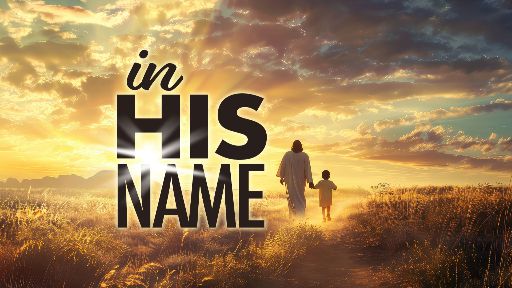-
Family Name
Contributed by Thomas Swope on Jan 20, 2020 (message contributor)
Summary: A study in Psalm 75: 1 – 10
Psalm 75: 1 – 10
Family Name
To the Chief Musician. Set to “Do Not Destroy.” A Psalm of Asaph. A Song.
1 We give thanks to You, O God, we give thanks! For Your wondrous works declare that Your name is near. 2 “When I choose the proper time, I will judge uprightly. 3 The earth and all its inhabitants are dissolved; I set up its pillars firmly. Selah 4 “I said to the boastful, ‘Do not deal boastfully,’ and to the wicked, ‘Do not lift up the horn. 5 Do not lift up your horn on high; Do not speak with a stiff neck.’?” 6 For exaltation comes neither from the east nor from the west nor from the south. 7 But God Is the Judge: He puts down one, and exalts another. 8 For in the hand of the LORD there is a cup, and the wine is red; It is fully mixed, and He pours it out; Surely its dregs shall all the wicked of the earth drain and drink down. 9 But I will declare forever, I will sing praises to the God of Jacob. 10 “All the horns of the wicked I will also cut off, but the horns of the righteous shall be exalted.”
A family name (also called surname or last name) is a name that is passed from one generation to the next. In many cultures a woman adopts her husband's family name when they are married.
In Europe, surnames began to be used in the 12th century, but it took several centuries before most Europeans had one. The primary purpose of the surname was to further distinguish people from one another. In the 13th century about a third of the male population had a given name of William, Richard or John *. To uniquely identify them, people began referring to different Williams as William the son of Andrew (leading to Anderson), William the cook (leading to Cook), William from the brook (leading to Brooks), William the brown-haired (leading to Brown), and so on. Eventually these surnames became inherited, being passed from parents to children.
Broadly, most surnames fall into four categories.
Surnames derived from given names include Johnson, Williams, and Thompson. Most often they are patronymic, referring to a male ancestor, but occasionally they are matronymic.
Occupational surnames refer to the occupation of the bearer. Examples include Smith, Clark, and Wright.
Locational or topographic surnames are derived from the place that the bearer lived. Examples include Hill, Woods, and Ford.
Surnames derived from nicknames include White, Young, and Long.
So, today we all have surnames. Yet we forget that we have an even more important name. (Put your first name here) the son/daughter of El Shaddai (Almighty God). Our Great and Wonderful Creator Is our Father. Now that is a name that should resonate in you an awe that surpasses anything this earth can offer. So, remember your family name and how your lives reflect honor or embarrassment as verse 1 of today’s Psalm teaches, “1 We give thanks to You, O God, we give thanks! For Your wondrous works declare that Your name is near.”
This Psalm and the following one appear to have been deliberately made to follow Psalm 74. In Psalm 74 the cry had gone up ‘how long’ before God acts? In this Psalm our Holy God says the evil has gone on ‘long enough’ and we see God acting in spectacular judgment against the nations. It is an assurance that God does hear His people’s cry of ‘how long?’ In this Psalm the nations are warned against arrogance claiming God will severely deal with those who arrogantly stand against God so that His people might praise Him.
To the Chief Musician. Set to “Do Not Destroy.” A Psalm of Asaph. A Song.
This Psalm is dedicated to the Chief Musician and is set to the tune of ‘Do Not Destroy’. It is a Psalm of Asaph, In it, after an opening giving of thanks, God speaks directly to the nations warning that He will judge them. This theme is then taken up by the Psalmist who warns the nations not to be arrogant or belligerent on the grounds that it is only God as the Judge of all men Who lifts up men and nations, and it Is He Who makes them drink whatever He desires, ensuring that the wicked drink up the dregs. It then ends with praise for the One Who humbles the wicked and exalts the righteous.
1 We give thanks to You, O God, we give thanks! For Your wondrous works declare that Your name is near.
The Psalm begins with Israel seen as giving twofold thanks to God because ‘His Name Is near’. They are sure that He, in the glory of what He Is, Is standing by them at the ready in order to help them in order to bring judgment on their enemies (Isaiah 30.27). This gives them cause for thanks because His wondrous works are well known among men who tell of them openly. They are confident that He will also act on their behalf with those same wondrous works.

 Sermon Central
Sermon Central



